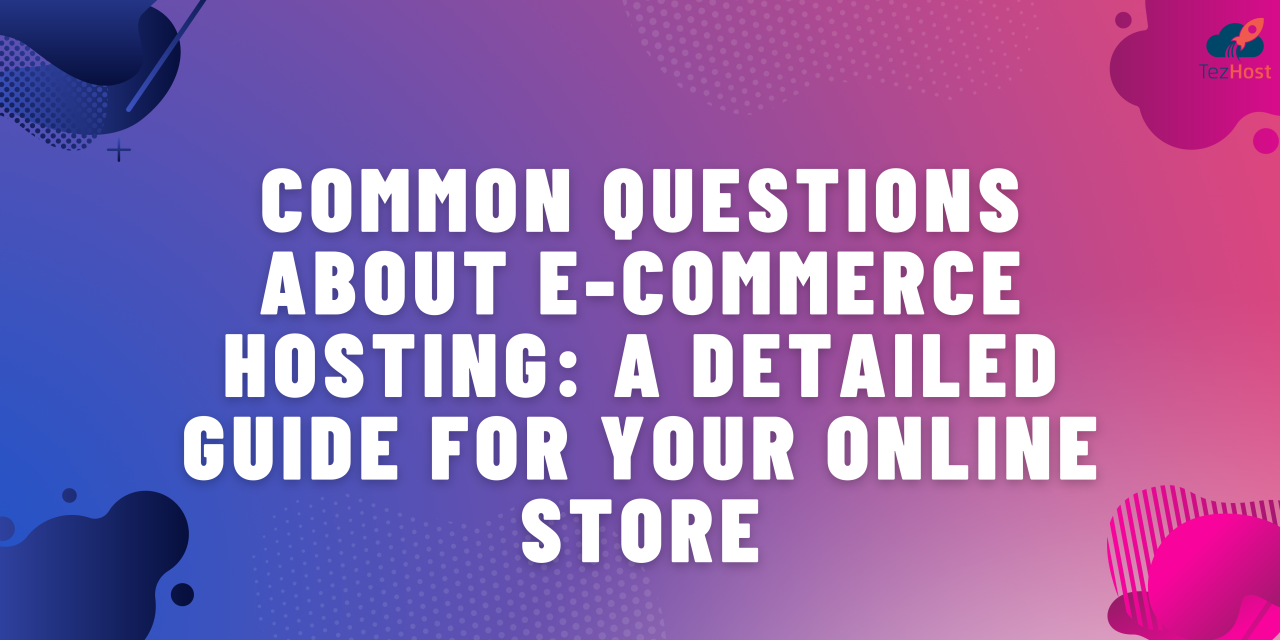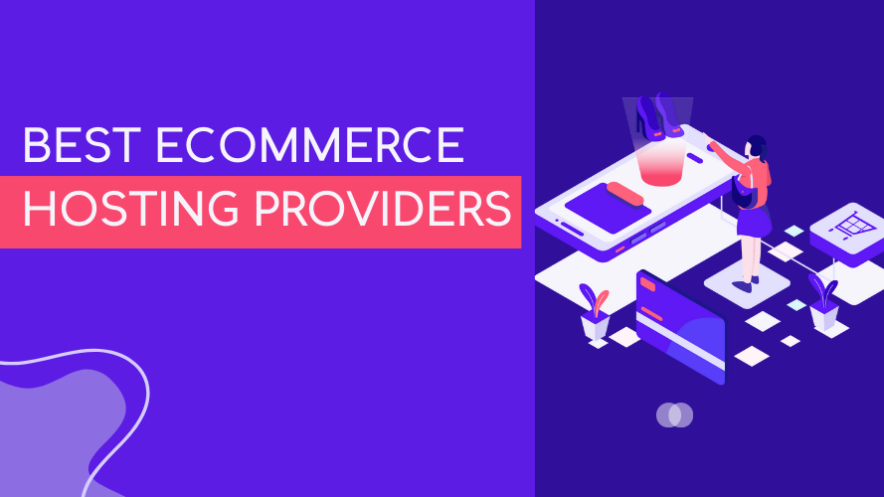Choosing the Right Hosting Plan for E-commerce
When running an e-commerce website, the hosting plan you choose plays a significant role in the success of your business. Your website needs to perform reliably, be secure, and be able to scale as your business grows. With a variety of hosting options available, selecting the right one can be challenging. This guide will walk you through the key considerations when choosing a hosting plan for your e-commerce store.
1. Understand Your Website’s Needs
Before selecting a hosting plan, it’s essential to assess the specific requirements of your e-commerce website. Factors such as the size of your product catalog, expected traffic, and the features you need will influence the type of hosting that is best for you.
Considerations:
- Traffic volume: If you’re expecting high traffic, you’ll need a hosting plan that can handle a large number of visitors simultaneously.
- Product catalog size: Large product catalogs with images, videos, and descriptions may require more storage and faster speeds.
- E-commerce platform: Consider whether you’re using platforms like Shopify, WooCommerce, or Magento, which have specific hosting requirements.
2. Choose Between Shared, VPS, or Dedicated Hosting
There are three main types of hosting: shared, VPS (Virtual Private Server), and dedicated hosting. Each has its pros and cons, and your choice will depend on factors like traffic, security, and budget.
- Shared Hosting: In a shared hosting environment, your website shares server resources with other websites. This is the most affordable option, but it may lead to slower speeds or downtime if other sites on the same server experience issues. Ideal for small e-commerce stores with low to moderate traffic.
- VPS Hosting: VPS hosting offers more resources and better performance than shared hosting. With VPS, your website is still on a shared server, but you get your own dedicated portion of the server’s resources. This option is better for medium-sized e-commerce businesses that expect moderate traffic but need more control and scalability.
- Dedicated Hosting: Dedicated hosting gives your website an entire server to itself, providing maximum performance, control, and security. It’s ideal for large, high-traffic e-commerce websites that require a significant amount of resources, security, and uptime.
3. Look for Scalability
As your e-commerce business grows, your website’s hosting needs will evolve. Scalability is an essential feature to consider when choosing a hosting plan. A scalable hosting solution allows you to upgrade resources like storage, bandwidth, and computing power as your traffic and product catalog increase.

Tip:
- Cloud Hosting is often the best option for scalability, as it allows you to easily adjust resources to meet changing demands. It can handle sudden traffic spikes without compromising performance.
4. Prioritize Security Features
Security is crucial for e-commerce websites, as they handle sensitive customer data, including payment details. A secure hosting environment is necessary to protect your customers and your business from potential cyber threats, data breaches, and fraud.
Key Security Features to Look For:
- SSL Certificates: Ensure your hosting plan includes an SSL certificate to encrypt customer data and secure online transactions.
- DDoS Protection: Distributed Denial of Service (DDoS) attacks can disrupt your website’s availability. Look for a hosting provider that offers DDoS protection to prevent such attacks.
- PCI DSS Compliance: If you’re handling credit card payments, ensure your hosting plan supports PCI DSS (Payment Card Industry Data Security Standard) compliance.
5. Speed and Performance
Website speed is a critical factor for e-commerce websites. Slow loading times can lead to higher bounce rates, a poor user experience, and a loss of sales. Choose a hosting plan that offers fast loading speeds and high-performance infrastructure.
Factors to Improve Speed:
- Content Delivery Network (CDN): A CDN can help speed up website load times by caching content at various locations worldwide, reducing the time it takes to load your website for users.
- Solid-State Drives (SSDs): Hosting plans with SSDs offer faster data access and better performance compared to traditional hard drives (HDDs).
- Caching: Some hosting providers offer built-in caching, which helps to speed up page load times by storing a version of your pages in memory.
6. Uptime Guarantee
E-commerce websites cannot afford downtime, as it directly impacts sales and customer trust. When choosing a hosting plan, ensure the provider offers a reliable uptime guarantee—ideally 99.9% or higher. This means your website will be up and running for most of the time, minimizing disruptions to your business.
Tip:
- Check the hosting provider’s uptime history and reviews to get a sense of their reliability.
- Ask about their backup solutions in case of server failure or data loss.
7. Customer Support
E-commerce websites need reliable customer support, especially if technical issues arise. A hosting provider with a 24/7 support team is essential for quickly resolving any problems that may impact your site’s performance.
Support Features to Look For:
- Live chat and phone support: Fast communication is key when issues arise.
- Dedicated account managers: For larger e-commerce businesses, a dedicated account manager can provide personalized support.
- Knowledge base and tutorials: A well-maintained support library can help you resolve minor issues on your own.
8. Cost vs. Features
While it’s tempting to choose the cheapest hosting plan available, it’s important to balance cost with the features your e-commerce store requires. Invest in a hosting plan that offers the resources and services necessary for optimal performance, security, and growth, rather than simply choosing the lowest price.
Tip:
- Consider long-term costs. Some hosting providers may offer initial discounts, but their prices may increase significantly after the first term.
9. Backup Solutions
Data loss can be disastrous for an e-commerce store. It’s important to choose a hosting plan that includes automated daily backups or an easy way to create manual backups.
Tip:
- Look for hosting providers that offer free or affordable backup services, so you can quickly restore your website in case of data loss or server failure.
10. Evaluate Additional E-commerce Features
Many hosting providers offer specialized features tailored for e-commerce stores. Look for plans that offer:
- 1-click e-commerce installations for platforms like WooCommerce, Shopify, or Magento.
- Email hosting for customer communication and business operations.
- Integrated payment gateways for easy transaction processing.
- Marketing tools like email marketing integrations and SEO optimization features.
Conclusion
Choosing the right hosting plan for your e-commerce website is essential for ensuring high performance, security, and scalability as your business grows. By evaluating factors such as traffic volume, security features, scalability, speed, and support, you can find a hosting provider that suits your needs and helps your e-commerce store thrive.



